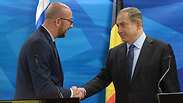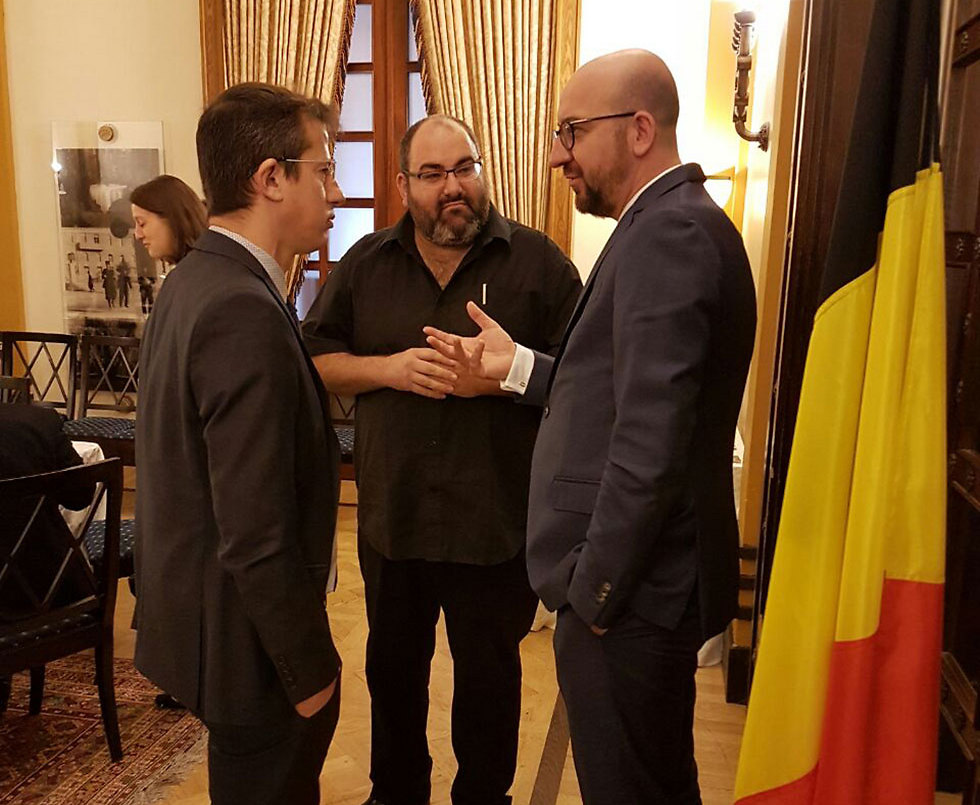

In this process, Israeli and Palestinian groups get a highly disproportionate amount through entirely secret decision making, and this has a direct impact on our society and political system. Whether one likes or dislikes Breaking the Silence, B’Tselem, Yesh Din and the 20 additional Israeli recipients of Europe’s largesse, there is no denying that the money they receive gives them a major impact on Israel. (No groups on the right of the political spectrum receive any European funds, which explains the polarized debate in Israel.)

Through humanitarian aid groups that endorse and campaign for BDS and other forms of discrimination, such as Broederlijk Delen and Oxfam, Belgium – which has its own deep political fissures – currently funds Breaking the Silence, Adalah, Yesh Din and Zochrot, a “1948 agenda” organization that considers Israel, regardless of borders, to be illegitimate. The Israeli groups get between NIS 100,000 and 270,000 annually. In addition, they partner with and support groups such as Defense for Children International – Palestine (DCI-P), Health Work Committee (HWC), Union of Health Work Committees, and the Union of Agricultural Work Committees (UAWC) whose officials are reportedly affiliated with a notorious terror group – the Popular Front for the Liberation of Palestine.
These activities, and, in particular, the NGO campaigns that are central to the effort to label many Israeli military and political officials, including Tzipi Livni, as war criminals, are a major concern for Israel, as reflected in Netanyahu’s comments to Prime Minister Michel, as well as to British Prime Minister Theresa May earlier in the week. All foreign government funding to political NGOs operating in another democracy is a violation of sovereignty and self-determination, and this issue is particularly important for Israelis.
When Michel then went and met with the leaders of Breaking the Silence and B’Tselem in Jerusalem, Netanyahu was forced to respond to this slap in the face. His acid response noted: "In Belgium, there are still proposals from the attorney general to put senior Israelis on trial, among them Tzipi Livni and IDF officers. The Belgian government needs to decide if it wants to change direction or continue on an anti-Israel line. Prime Minister Netanyahu has ordered a bill be drafted to prevent funding from foreign governments to NGOs that harm IDF soldiers."
The role of Belgium in NGO demonization through BDS and lawfare is similar to that of other western European countries and the EU – together, they give these “Israeli” NGO the majority of their operating budgets, giving them the money to pay salaries, pay for numerous lawsuits against the government in the Israeli courts, and travel in order to promote their private campaigns. But in Belgium, the intensity of the demonization and attacks against Israel (and against Jewish targets) are particularly strong and widespread, reflecting the propaganda influence of powerful groups NGOs like Broederlijk Delen.
Michel has participated in these attacks – in 2009, as minister of development cooperation, he repeated the standard NGO trope on Israeli responses to rocket attacks from Hamas-controlled Gaza, saying that "there is no word to define the degree of horror." The next year, he was denied entry into Gaza (like many others at the time). Following the incident of the 2010 flotilla to Gaza, Michel’s response was reflected in the standard NGO slogans: "It is imperative that the EU and its member states coordinate a strong and rapid response to this apparent force disproportionate use in the difficult humanitarian context that Gaza faces..."
The NGO-led demonization campaigns and their direct links to anti-Semitism in Belgium and in Europe have continued undisrupted for 20 years. For Israel, the hate and political warfare that these activities produce are not part of the Right vs. Left divide – efforts to indict Livni and many others who are not part of the Likud-led coalition for war crimes demonstrate the general impact. Policy differences notwithstanding, the European funding for radical NGOs targeting Israel has no parallel in the democratic world, and the double standards, as noted by Netanyahu, are not tolerable.
To end this attack and avoid the Israeli legislation regulating foreign funding that European officials and their NGO allies strongly oppose, negotiations on mutually acceptable guidelines are necessary. Instead of meetings between visiting European politicians and their Israeli clients, it would be far more useful for European leaders and members of parliaments to meet with and listen to their Israeli counterparts in the Knesset. Without a direct and sustained exchange, the confrontation will increase.
Prof. Gerald M. Steinberg is president of NGO Monitor and professor of Political Studies at Bar-Ilan University.
















